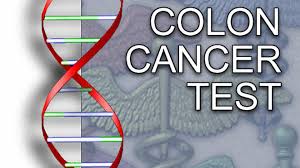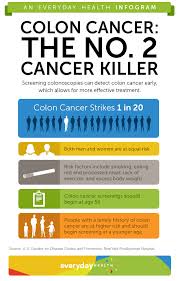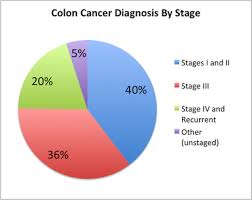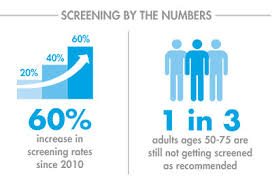 March is Colorectal Cancer Awareness Month: a perfect time to direct attention to the tail end of your digestive tract. Contrary to what many believe, the colon isn’t an inert hollow tube that simply serves as a reservoir for waste until you can find a toilet. Rather, it’s a complex organ that performs the essential function of facilitating balance of fluid and electrolytes in the body in addition to its role in storing and eliminating waste. Equally important – if not moreso – the colon hosts a crucial ecosystem of bacteria that plays a vital role in health. Unfortunately, many of us fail to appreciate just how central the colon is to our health and survival until something goes wrong.
March is Colorectal Cancer Awareness Month: a perfect time to direct attention to the tail end of your digestive tract. Contrary to what many believe, the colon isn’t an inert hollow tube that simply serves as a reservoir for waste until you can find a toilet. Rather, it’s a complex organ that performs the essential function of facilitating balance of fluid and electrolytes in the body in addition to its role in storing and eliminating waste. Equally important – if not moreso – the colon hosts a crucial ecosystem of bacteria that plays a vital role in health. Unfortunately, many of us fail to appreciate just how central the colon is to our health and survival until something goes wrong.
Colorectal cancer is the second leading cause of cancer deaths in the U.S., claiming the lives of more than 50,000 Americans annually. The vast majority of cases occur in people over age 50, and African Americans have the highest rates of colon cancer incidence among all racial groups. 
As scary as these stats may sound, a large percentage of cases are preventable. Here are 10 lifestyle changes that may be of benefit in colorectal cancer risk reduction:
- Reduce your alcohol intake. When it comes to cancer prevention, less (alcohol) is more. Alcohol use is a known risk factor for colorectal cancer – among other cancers – with risk increasing as alcohol intake increases. If you choose to drink, try limiting your intake to no more than one drink daily.
- Quit smoking. Smoking is not just a risk factor for lung cancer, but for all digestive system cancers, including colorectal, stomach and esophageal. Make the decision to quit this month, once and for all.
- Get moving! Sedentary lifestyles are associated with an increased risk of digestive system cancers. Evidence supporting a significant protective effect of physical activity on colorectal cancer risk is particularly strong. The body of available research suggests that the most active adults have a 40 to 50 percent reduced risk of developing colon cancer, compared to the least active adults. Importantly, the protective effect of exercise appears to be independent of weight status, meaning that regular physical activity appears to reduce risk of colon cancer even in people who are overweight or obese. So if regular exercise hasn’t yielded the weight loss you’ve hoped for, don’t be discouraged: There are substantial health benefits to physical activity that may not show up on the scale.

- Get serious about weight loss. Obesity is a strong risk factor for colorectal cancer, and researchers estimate that risk increases about 15 percent with each five additional points of body mass index beyond the upper end of normal range. So, for example, weight loss that results in a reduction of BMI from 35 to 30 would be expected to result in about a 15 percent risk reduction.
- Eat less red meat. There is strong evidence supporting high intake of red meat as a risk factor for colorectal cancer. One large study that examined the diets of adults aged 50 to 71 showed that people with the highest intakes of red meat – an average of 5 ounces per day – had a 24 percent greater risk of developing colorectal cancer compared to those with the lowest intake – an average of about half an ounce per day. It has been proposed that multiple mechanisms may be at play, including the type of iron found in red meat (heme iron) and increased exposure to carcinogens called HCAs that are produced when red meat in particular is charred or cooked at a high temperature. If you can’t imagine life without red meat, try thinking of red meat as a garnish to veggie-heavy meals such as stir fries or salads, rather than a center-of-the-plate affair. And consider lower-temperature cooking methods such as braising, boiling or even sautéing instead of broiling or grilling.

- Avoid foods preserved with sodium nitrite. As you go about reducing your meat intake, start with “pink” processed meats like bacon, salami and hot dogs. These foods – as well as other processed lunchmeats – are commonly preserved with sodium nitrite. When sodium nitrite encounters stomach acid during digestion, it may convert to a compound called a nitrosamine, which is a known carcinogen. Indeed, both high intake of nitrites and processed meats have been associated with increased risk of colorectal cancer compared to lower intakes. If you choose to consume processed meats, look for nitrite-free products, such as those marketed by the Applegate Farms brand.
Read more here: U.S News & World Report
